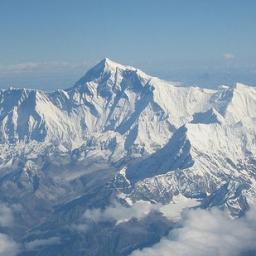Packing for two years, off the grid in the Himalayas...
 With a budget of just $1,200, and room for one carry-on and two check-in suitcases, both of no more than 60 kg (132 lbs), total, how would you prepare for living completely off-the-grid for two years in a remote village in the Himalayas?
With a budget of just $1,200, and room for one carry-on and two check-in suitcases, both of no more than 60 kg (132 lbs), total, how would you prepare for living completely off-the-grid for two years in a remote village in the Himalayas? That's the question asked by the Shortwave Listening Post, based on a user request, obviously with an intended focus on radio equipment and accessories. The necessities like food, shelter and warm clothing apparently being taken care of for you. Radio certainly would seem like the way to go for inexpensive entertainment and information in very remote areas, but answers that instead include satellite internet services (that stay within the budget with 2-years of service) could be equally interesting, if they are in fact available and practical.
http://swling.com/blog/2014/09/virtual-radio-challenge-ii-two-years-off-grid-in-the-himalayas/